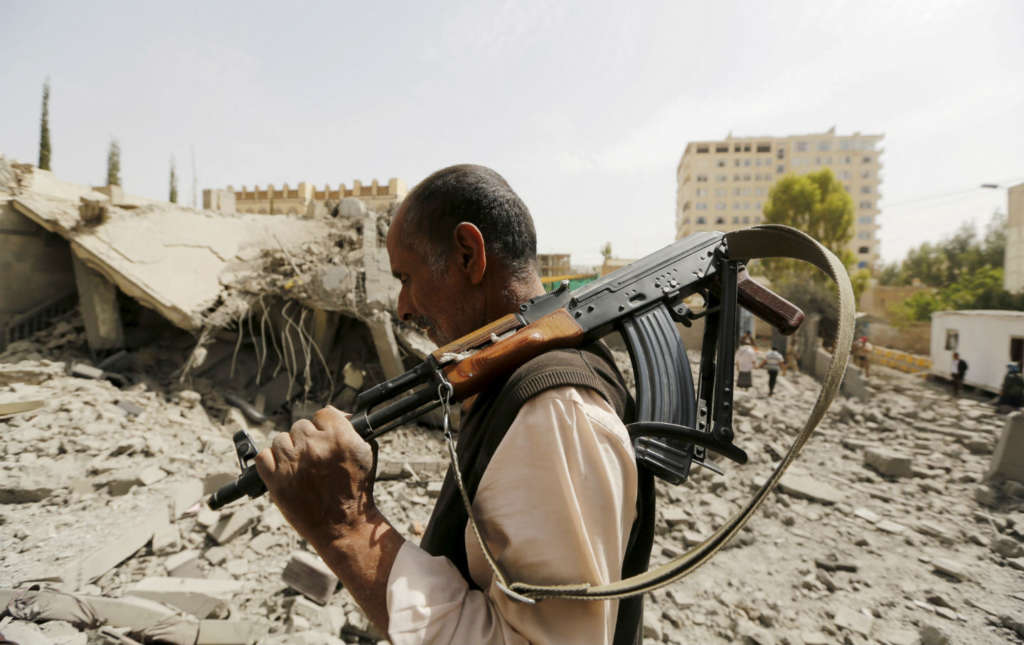Aden- Two senior commanders among the ranks of armed loyalists backing Yemen’s ousted president Ali Abdullah Saleh were killed in an area near Sana’a on Wednesday.
Partaking in the insurgency aiming to overturn the internationally-backed government of President Abdrabbuh Mansur Hadi, the commanders, one of whom is Saleh’s nephew, were killed in an ambush, local sources said.
In the ambush west of Sana’a near Al Mahwit governorate, armed Houthis attacked and killed the governorate’s security chief Major General Ali Saleh al-Ghani and Brigadier General Wadah al-Shahtari.
The ambush took place when Ghani and Shahtari were running a field inspection of pro-Saleh military encampments in Wadi al Manqb, the sources added.
Both Houthis and pro-Saleh loyalists have gone hand-in-glove in their attempts to reign over Yemen. Backed by Iran, Houthis overran Sana’a in 2014 and established a coup capital there, after driving out legitimate authorities. Ever since, dispute and conflict pitted Houthis and Saleh loyalists, particularly on issues and strategies on how militants would rule confiscated areas.
Pro-Saleh loyalists are increasingly being marginalized by Houthis, especially in administrative affairs, pro-Saleh militants said. The latest assassination comes to exacerbate tensions between coup factions, as Houthis dive a step deeper into unilateral decision making in Sana’a.
Observers expect the death of the two commanders to have sizable fallout on the already fragile alliance.
“Rising tensions will likely end in a series of assassinations that will further weaken the alliance,” Wissam Mohammad, a political analyst, said.
“After failing to gain recognition for their putschist authorities, coup militias now face a frustrating deadlock that manifests in augmented infighting,” Mohammad added.
“Even though the assassinations being at the very least provocative, the alliance will still be upheld for the time being—the coup’s chances at a political future are diminishing as pro-government forces advance on many fields, and for that reason they will sustain such a coalition despite increased aggressiveness against one another,” Mohammad told Asharq Al-Awsat.
For weeks on end Sana’a has been seeing a buildup in propaganda by both coup sides, with a wave of criticism targeting Houthis hitting social media platforms and media outlets. Most of the verbal reprehension was spurred by continued Houthi aggressions and failure to share power with their allies.
